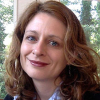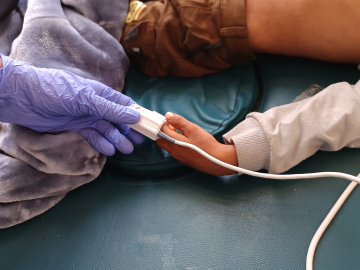Public Health Pulls Lessons from Pandemic Discord and Disparities
COVID-19 has “exposed some things that are unsightly about us as a society”—including selfishness and an unwillingness “to sacrifice personal privilege for communal safety,” said Pastor Howard-John Wesley, DMin, of Alexandria, Virginia’s Alfred Street Baptist Church at today’s 4th annual Bloomberg American Health Summit.
While the pandemic made Americans more aware of public health, he said, it also has exposed racism as a public health crisis. “But sadly, too many Americans don’t see it; they failed to recognize it or name it,” Wesley, the keynote speaker, told participants of the virtual event that examined the public health lessons of the COVID-19 pandemic.
Proof, though, is in the data—revealing disparities in mortality rates, and access to COVID-19 testing and treatment. “You can’t demonize data,” Wesley said.
He urged the public health community to not only confront the coronavirus but to embrace scientific data and address racial inequities in health. “The pain of this pandemic has re-exposed the cancer of racism and we must treat them both,” he said.
The importance of improving data collection to address health disparities featured prominently in the summit’s opening session, with Kelly Henning, MD, leader of the Bloomberg Philanthropies Public Health program, highlighting the need for more purposeful focus on the collection of data about race, socioeconomic status, and other factors.
In a panel focused on reducing health disparities, David Carlisle, MD, PhD, the president and CEO of the Charles R. Drew University of Medicine and Science underscored the point that for many years, there has been anecdotal knowledge of health care disparities—"but it wasn’t until we started collecting data that we actually could measure and quantify health care disparities,”—and that made it much harder for policymakers to ignore inequities.
Still, disparities in data collection persist, and a commitment is needed to keep up the momentum to correct those gaps, Carlisle emphasized.
Moreover: Health organizations and agencies must be held accountable, added another panelist, James E.K. Hildreth, MD, PhD, the president and CEO of Meharry Medical College.
Universities have a role to play, too. Ronald J. Daniels, JD, LLM, the president of Johns Hopkins University, highlighted another lesson: the dark side to the information overload, as ever-evolving and sometimes contradictory public health guidance helped create the conditions for the spread of misinformation and conspiracy theories during the pandemic.
To Daniels, though, “ …the partisan distortions of academic research and the sporadic missteps of experts are not an argument to close off academic research and insight from the public.” One of the critical lessons of the past 20 months, in his view, is that “we must not shy away from, but truly embrace openness and visibility,” recognizing that public health data and the recommendations drawn from it are a “vital public resource”—with important takeaways:
- There’s little room for error in this era of social media: “Even isolated mistakes or corrections had the power to feed misinformation campaigns, and to undermine the legitimacy of facts and expertise.”
- “It falls to universities … to build guardrails to ensure that reliable research and insights” reach the public.
Public health workers are another important key—and while the pandemic brought challenges for many, including exposure to threats and abuse for doing their jobs, it also brought a heightened awareness of the importance of public health. That’s clear from rising enrollments for public health schools across the country, said Beth Resnick, assistant dean for Public Health Practice and Training at the Johns Hopkins Bloomberg School of Public Health, in a session on social discord and the future of public health.
Jennifer McKenney, associate dean for Rural Health at the University of Kansas Medical Center, said she wants public health students to see that “it’s all worth it,” advising them that, while science and data are important,” never forget that the public health that we’re doing is truly about the people that we serve.
Join the 50,000+ subscribers in 170+ countries who rely on Global Health NOW summaries and exclusive articles for the latest public health news. Sign up for our free weekday newsletter, and please share the link with friends and colleagues.
Michelle Spencer, David Carlisle, and James E.K. Hildreth discussing health disparities at the virtual Bloomberg American Health Summit, Nov. 10, 2021.





